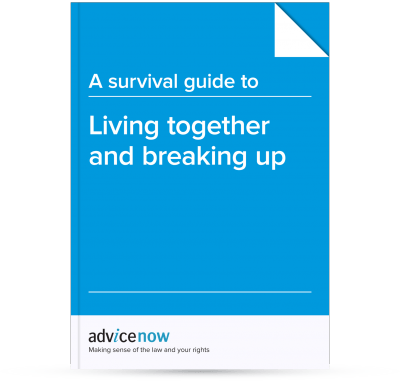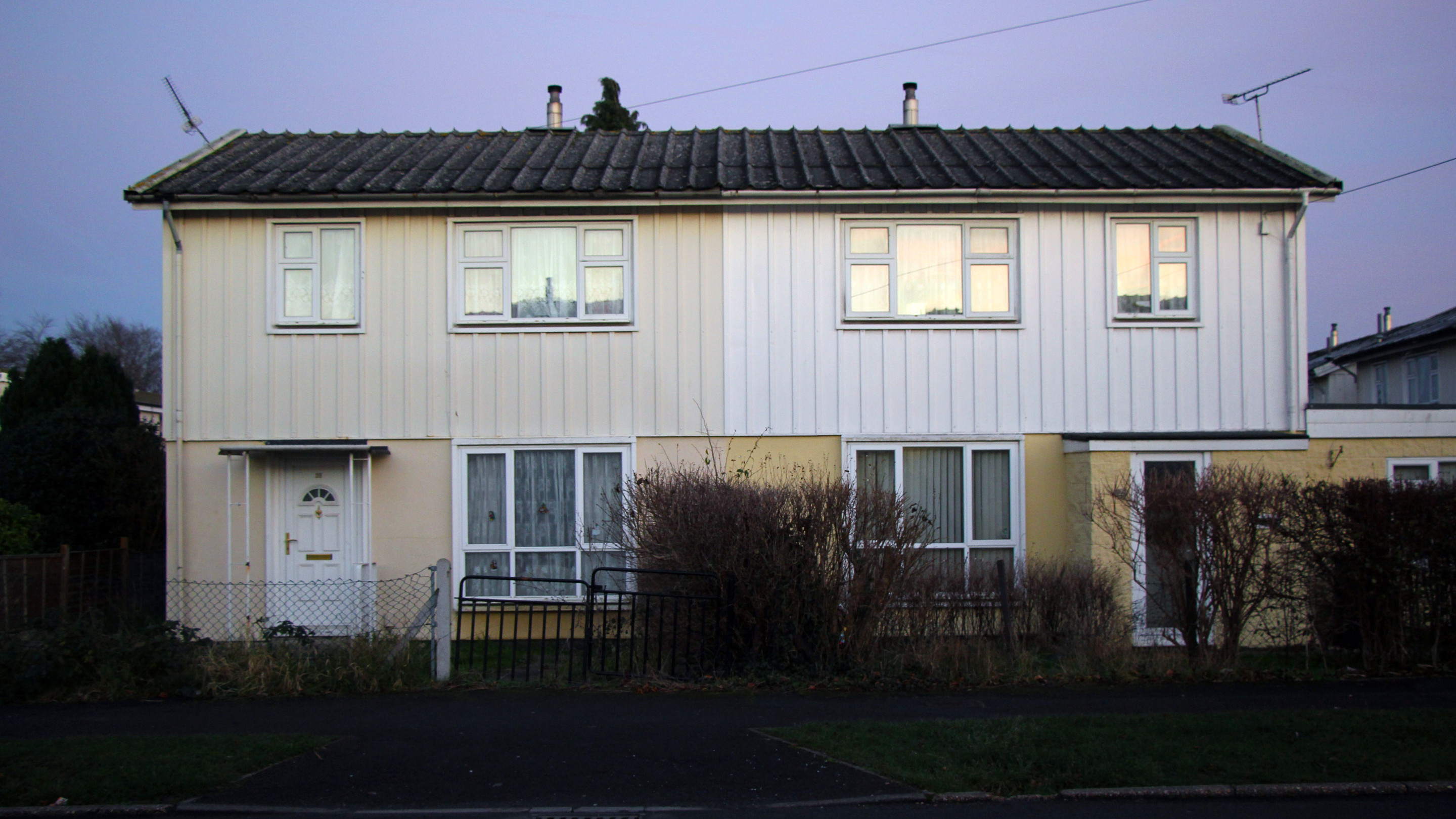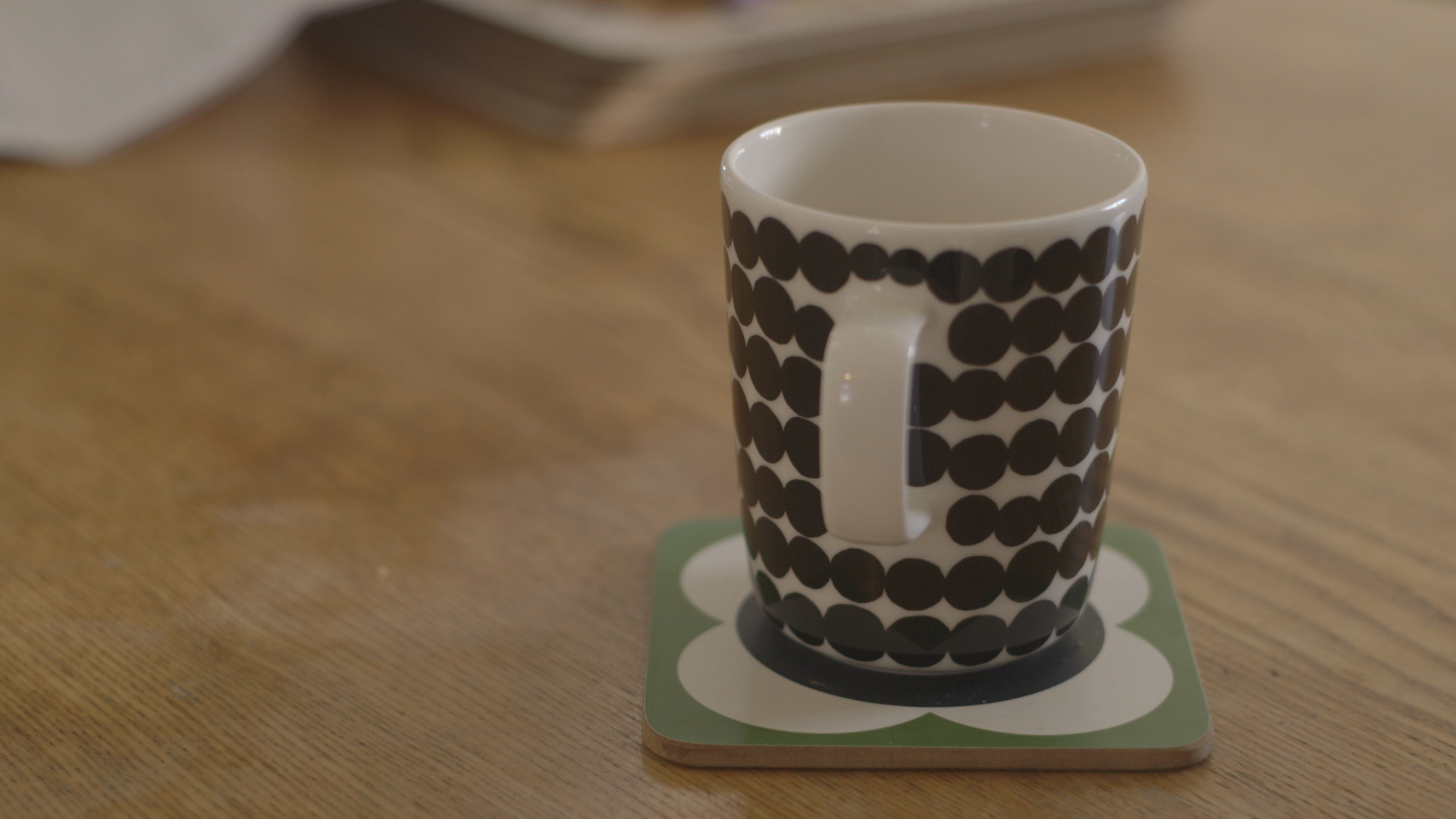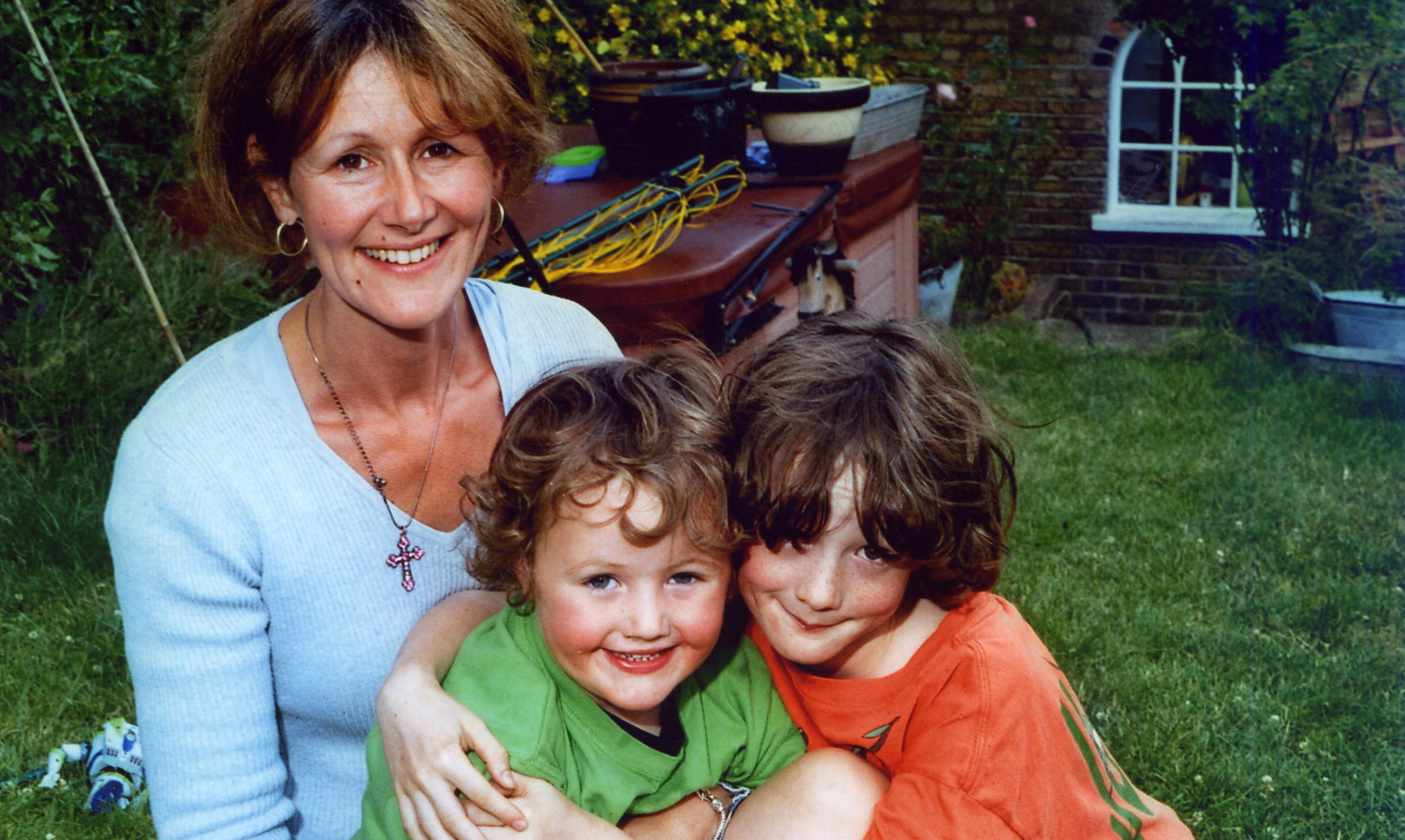Many people believe that after a couple of years they become common law partners, with the same rights as married couples – but this isn’t true! No amount of living together - not 6 months, 6 years or 26 years – will turn your relationship into a common law marriage, because common law marriage in this sense doesn’t exist in England and Wales.
If you made a living together agreement, now’s the time to dig it out and remind yourselves what you agreed to. If you don’t have one then you and your ex will need to work out a way of dividing your joint money, joint debts and how any property will be dealt with. If you have children, you will need to work out how you will parent them together even though you are separating.
Children
Working out how you will care for, spend time with and parent your children
- If you have children together then as parents you share responsibility for sorting out arrangements for your children. It’s up to you to make every effort to agree how you will bring them up. If talking is difficult, help is available. We’ve produced a separate guide for parents to help you to agree arrangements that work well for everybody, and to find a solution if that is not possible. Take a look at A survival guide to sorting out child arrangements for more information. We've also written a guide for parents who have to ask the court for a child arrangements order. If you are in this position go to How to apply for a child arrangements order without a lawyer for more help. If you are not sure whether or not you have parental responsibility for your children you can find out more by going to How to get parental responsibility without a lawyer.
Financial support for caring for your children after you break up
If you have children together, whoever the children spend less time living with and being cared for by will have to pay child maintenance. Child maintenance is money paid by one parent to the other to meet the income needs of their children.
If you divide the care of your children absolutely equally, the law about whether either parent has to pay any child maintenance is less clear – but what amounts to equal care in this context isn’t just about the number of nights the children stay with you. If you think you are in this situation you may need some legal advice. See More help and advice.
- Child maintenance is paid either until your child turns 16 or until they finish full-time, non-advanced education (A levels, BTEC national diploma), up to their 20th birthday. It is best to try and agree how much the parent doing most of the childcare will receive from the other. You can find out how much child maintenance you should be paying or receiving by using the official Child maintenance calculator.
- If you really can’t agree the amount, either of you can apply to the Child Maintenance Service (CMS). You can contact Child Maintenance Options for support 0800 953 0191 - Monday to Friday, 8am to 8pm. Beware, if you end up needing the Child Maintenance Service (CMS) to deal with the payments, both of you will have to pay fees for that service.
- If the children are not actually your children (for example, if they are your ex’s from a previous relationship) you are not financially responsible for them unless you have adopted them. This doesn’t mean you can’t ask to spend time with them and if necessary apply for a child arrangements order.
Depending on your circumstances, you may be able to make a claim against your ex for financial help for the benefit of any children you have together. You may be able to make a claim for:
- a ‘lump sum’ of money for one off or occasional capital costs connected to looking after your child, for example, a new car or washing machine, and/or,
- the transfer of capital into a housing fund, that lawyers call “a settlement” (we explain more about this next), or
- regular payments (lawyers call these ‘periodical’ payments) for the costs of your child’s care care if the CMS has declared that your ex earns more than £156,000 gross a year, or if you are claiming money to help with your child’s disability or school fees.
Be aware that financial help from your ex, ordered by the court, to create a housing fund for you and the children is just to give them and you a home while you bring them up. It won’t give you any share in the property –you don’t get to keep it and the amount in the fund or ‘settlement’ will have to be repaid later. But, it does mean you have somewhere for you and the children to live as they grow up. The usual time when the fund has to be re-paid is when your child reaches 18 or finishes their tertiary education up to and including first degree level (to include a gap year).
This area of the law is complicated, so you should get some advice from a good family law solicitor to find out where you stand. Go to the section called More help and advice on how to find one.
Legal aid may be available for this type of case if you have experienced or are at risk of experiencing domestic abuse or violence. You can find more information at How to get legal aid for a family law problem.
Maintenance – for partners
- You won’t need to pay any maintenance and won’t receive any maintenance for yourself, even if you gave up work to look after children.
If your ex is a very high earner you might be able to apply to court for extra maintenance for your child, and sometimes, some maintenance to cover the cost to you of caring for them. But you can only do this if the Child Maintenance Service tells you that your ex earns more than £156,000 gross a year. This is called “top up” child maintenance and if your ex is a very high earner it is sometimes possible to ask for what is called “carer’s allowance” to cover your costs of caring for the child. Be aware though, that it is very rare and only ordered in cases where your ex has a very high income.
Rented home
- If you rent your home and the tenancy is in joint names, you have equal rights to keep it. You will both be legally responsible for paying the rent until the tenancy ends or is transferred into one name only. Be careful though, if either one of you gives notice to quit the whole tenancy comes to an end and none of the family will be able to continue living there. Also, you may be assessed by your local council housing team to have made yourself ‘intentionally homeless’. This means the council can say you will not be eligible for re-housing as a homeless person. Deciding whether giving notice to quit is the right thing to do in your situation, and if so when and how to do it, are complicated questions. It is a good idea to get specialist advice to help with these decisions.
Shelter gives advice about rented housing and helps people struggling with bad housing or homelessness through advice, support, and legal services. Visit shelter.org.uk/get_help for information and advice online and to access Shelter’s emergency helpline. If you live in Wales, go to Shelter Cymru. |
- If the home you rent is a council or housing association tenancy and is in your joint names or your ex’s sole name you may be able to apply to transfer the tenancy into your sole name. Speak to your landlord to try to agree the best way of transferring the tenancy. If you cannot reach an agreement you may be able to apply to the family court for an order to transfer the tenancy. If you possibly can, get some help from a family law solicitor to do this. See More help and advice on how to find one. This option is not available to most private tenants.
- If you rent your home privately and the tenancy is in your ex's name only, you have no automatic right to stay if your ex asks you to leave. He or she should give you a reasonable time to find somewhere else – for example, one month.
- Try and reach an agreement with your ex about who (if either of you) is going to stay in your rented home. Whoever is going to stay on will need to be able to afford the rent (perhaps with the assistance of housing benefit or universal credit). Then approach your landlord to see if they will agree to transfer the tenancy into one name.
Housing law is extremely complicated. You must get advice about your rights to transfer a tenancy, the implications of doing so and how to do it - see the contact information for Shelter (England) and Shelter Cymru above.
Owner occupied home
There are two ways you can own a home (or other property). We explain these next.
- There is someone lawyers call the ‘legal’ owner. This tells you who the ‘official’ owner of the home is. This person’s name is registered as the legal owner on the Title Register at the Land Registry. Having the legal interest gives you the right to control the property, for example, sell it.
- There is also someone call the ‘beneficial’ owner. This person owns the benefit, value or what lawyers call the ‘equity’ in the property. Lawyers also talk about this type of owner as having a ‘beneficial interest’ in the home. Having the beneficial interest in the property means you are entitled to some amount of the value when it is sold.
Often if you own your home you will be both the legal and beneficial owner. But sometimes you may be just one or the other.
Finding out how your home is owned
You may have a clear understanding of who owns your home and how. Or, you might not actually be sure at all. A survival guide to home ownership and living together explains what you need to do to find out.
When you own your home with someone else, such as your ex, both your names will be on the Title Register at the Land Registry. This means that you jointly own the legal title. The next thing to do is understand what beneficial interest you have in the home.
The law allows you to own the beneficial interest in a home with another person in two different ways:
- As joint tenants, or,
- As tenants in common.
The jargon is a bit confusing, but don’t be put off by it.
Owning your home as beneficial joint tenants means:
You own it jointly and you each own all of it. If you split up and formally “sever the joint tenancy” by serving a notice on your ex, you are entitled to half of the value. If one of you dies, the other person automatically owns the whole property. Lawyers call this the ‘Right of Survivorship’.
Owning a home as beneficial tenants in common means:
You each own a defined share of the value. You agree the shares, or sometimes the court orders what share you each get. You can own it in any shares that you agree on (70/30, 60/40, 50/50 etc.) If one of you dies, your share goes to whoever is named in your Will. If there is no Will, it will go to your closest relative in line with the intestacy rules.
To work out whether you own the property as beneficial joint tenants or tenants in common you need to look at the TR1 form. On this form it will say, in section 10, whether you own the beneficial interest as beneficial joint tenants or beneficial tenants in common. If you own it as tenants in common it will state what shares you each have. A survival guide to home ownership and living together explains how to get a copy of the TR1 form, if you don’t have one already.
Generally speaking, the TR1 form will be legally binding on both you and your ex and will determine the shares you each get of the property, regardless of what you may have spent on it when you were together.
If you’ve been living in a home your ex owns in just their name and there's no other agreement or understanding in place, you will have no automatic right to stay if your ex asks you to leave. However he or she should give you reasonable notice.
If you’ve been living in a home your ex owns, you don’t have an automatic right to a share in the value of it known as the ‘equity’. Nor can you ask for a share to be transferred as you would do if you were married or in a civil partnership.
You’re not entitled to any equity from the property – unless you can show that:
- you both intended for you to own a share and,
- because of that agreement you did something to your own detriment (such as gave up work or a job opportunity or a council tenancy) or,
- you contributed to the purchase price, the mortgage payments, or major building work to the property.
Non-financial contributions, such as doing building work yourself to improve the property, can also count in some circumstances. (If you have children together then you may be able to apply for a 'settlement' of property order for the benefit of the children – see Children above.)
How the law treats any money you contributed to the home you lived in but don’t own depends on:
- what you and your ex agreed or understood between you, or
- how the court looks at what you said, or did, to work out how you both understood the situation.
For example, was it a loan – to be repaid at an agreed date with or without interest as agreed? Was it a gift? Or was it a contribution which gives you a legal right called a beneficial interest? Again, if you made a living together agreement, now’s the time to find it and remind yourselves what you agreed to – hopefully you will have covered this issue.
The easiest way to prove you have a beneficial interest is if you have something in writing or a formal trust deed with your partner setting out who should get what when the home is sold. Without this kind of evidence proving what your intentions were, the law looks for other evidence about what understanding (if any) existed between the two of you. This involves considering questions such as:
- What did you agree about the beneficial ownership of the property?
- Were you promised a share of the property?
- Did that promise or understanding mean that you acted to your detriment in some way, for instance gave up your job or left your own home in order to live with your ex?
- Who contributed to the purchase of the property?
- Who paid the mortgage?
- Who carried out improvements to the property?
If you can prove that you have a beneficial interest (and this is often very difficult to do), this may allow you to:
- to get the right to live in the home,
- prevent the sale of the home for a limited period of time,
- pay the mortgage to stop the home from being repossessed or,
- get a share from the proceeds of sale if the home is sold.
If you are not married or in a civil partnership and don’t own the home you shared with your ex either jointly or in just your name, this is the only way to establish long-term rights to the home and a share of the proceeds of sale. The law about this is complex and you will need legal advice about whether and how to take action. This type of case isn’t treated as a family case - it is dealt with by the normal civil court. The court will order you to pay your ex’s legal costs if you lose. You may hear lawyers call these cases ‘TOLATA cases’ after the law that governs them - the Trusts of Land and Appointment of Trustees Act 1996.
Stuff and savings
- If you owned something before you got together, it belongs to you.
- If you bought something with your own money it belongs to you.
- If you inherited something or someone else gave something to you, it belongs to you.
- If you bought something and gave it to your ex, it belongs to them.
- If you bought something together but each contributed different amounts to the price, you own it in the shares in which you contributed, unless you have agreed differently.
Pensions
- You won’t be able to make any claim against your ex’s pension.
Debts
If the debt is in your name, you alone are responsible to the lender for paying it off - it doesn’t matter who spent the money. If the debt is in both names, you are both equally responsible for paying it off but the lender can usually chase either of you for all of the debt that still needs to be paid back.

 Or you may be feeling guilty, rightly or wrongly. You may be tempted to be overly generous so that you don't have to feel any worse. But that's not always a good approach. You need to make sure that you come to an arrangement so that you don't feel angry or resentful about in the future.
Or you may be feeling guilty, rightly or wrongly. You may be tempted to be overly generous so that you don't have to feel any worse. But that's not always a good approach. You need to make sure that you come to an arrangement so that you don't feel angry or resentful about in the future.
 An ‘owner occupied home’ is where one or more of the people living in the home are the legal owners of the home.
An ‘owner occupied home’ is where one or more of the people living in the home are the legal owners of the home. 


 Legal aid may be available to pay for a solicitor to negotiate on your behalf if you have experienced or are at risk of experiencing domestic abuse or violence. You can find more information about legal aid for family problems at
Legal aid may be available to pay for a solicitor to negotiate on your behalf if you have experienced or are at risk of experiencing domestic abuse or violence. You can find more information about legal aid for family problems at  If you are struggling to agree arrangements for your children take a look at
If you are struggling to agree arrangements for your children take a look at  If you find it impossible to agree what share (if any) you should each have in the family home you lived in together,
If you find it impossible to agree what share (if any) you should each have in the family home you lived in together,  If you are on a low income, check if you might be entitled to benefits or tax credits now you are a single person. There is a very helpful
If you are on a low income, check if you might be entitled to benefits or tax credits now you are a single person. There is a very helpful  The easiest thing is probably to close all joint accounts and divide up any money in them. If you decide it would be easier for one of you to keep an account, make sure you let your bank know the situation, and change the account into one name only. If you don't, your ex could empty the account or run up a huge overdraft that you will both be legally responsible for.
The easiest thing is probably to close all joint accounts and divide up any money in them. If you decide it would be easier for one of you to keep an account, make sure you let your bank know the situation, and change the account into one name only. If you don't, your ex could empty the account or run up a huge overdraft that you will both be legally responsible for. 

